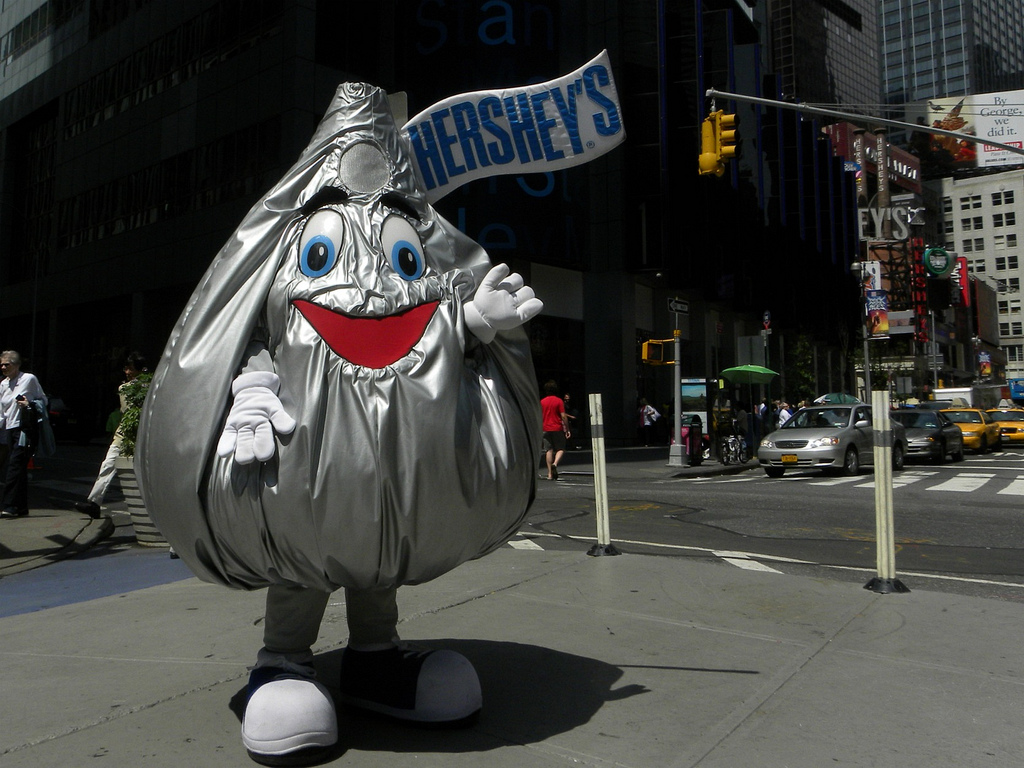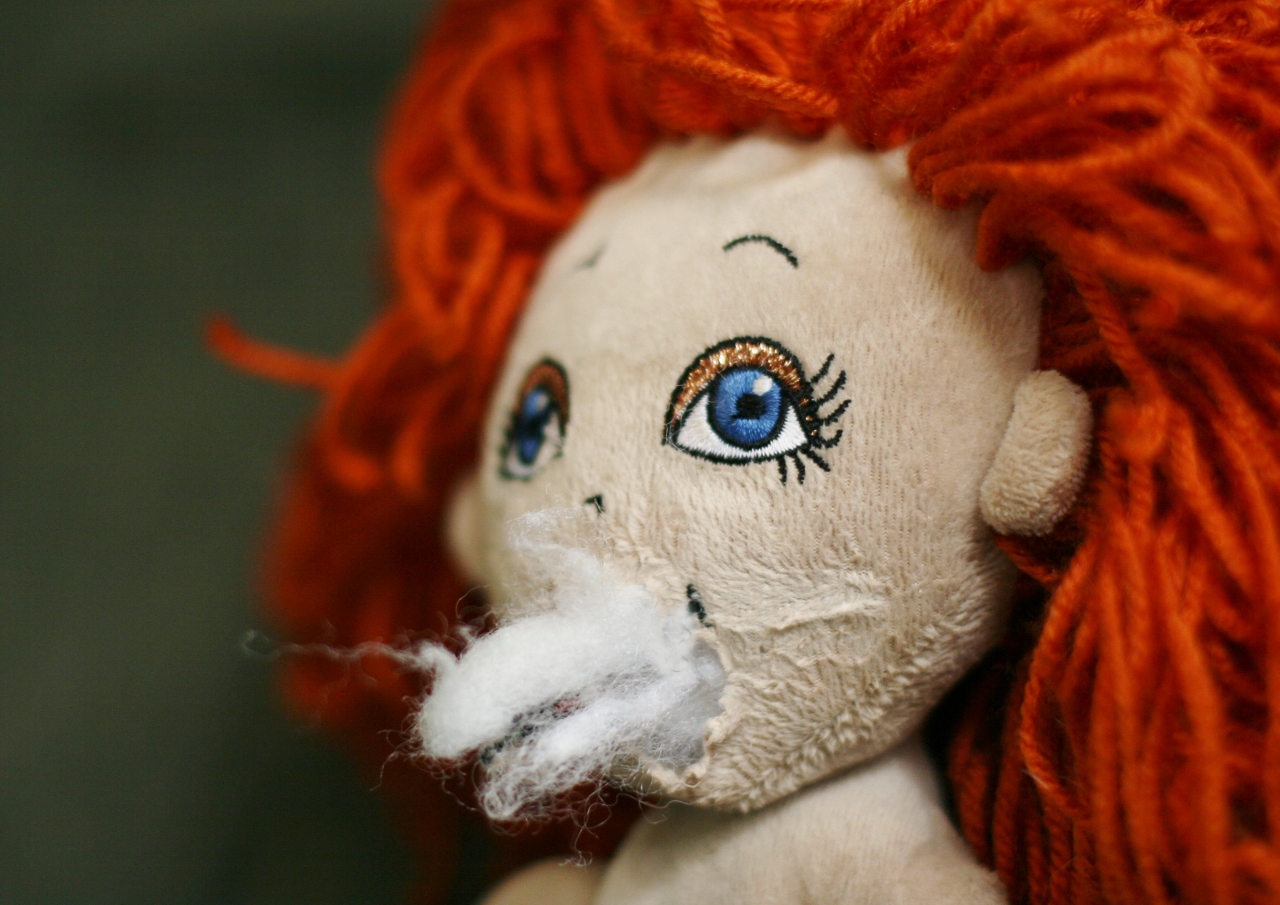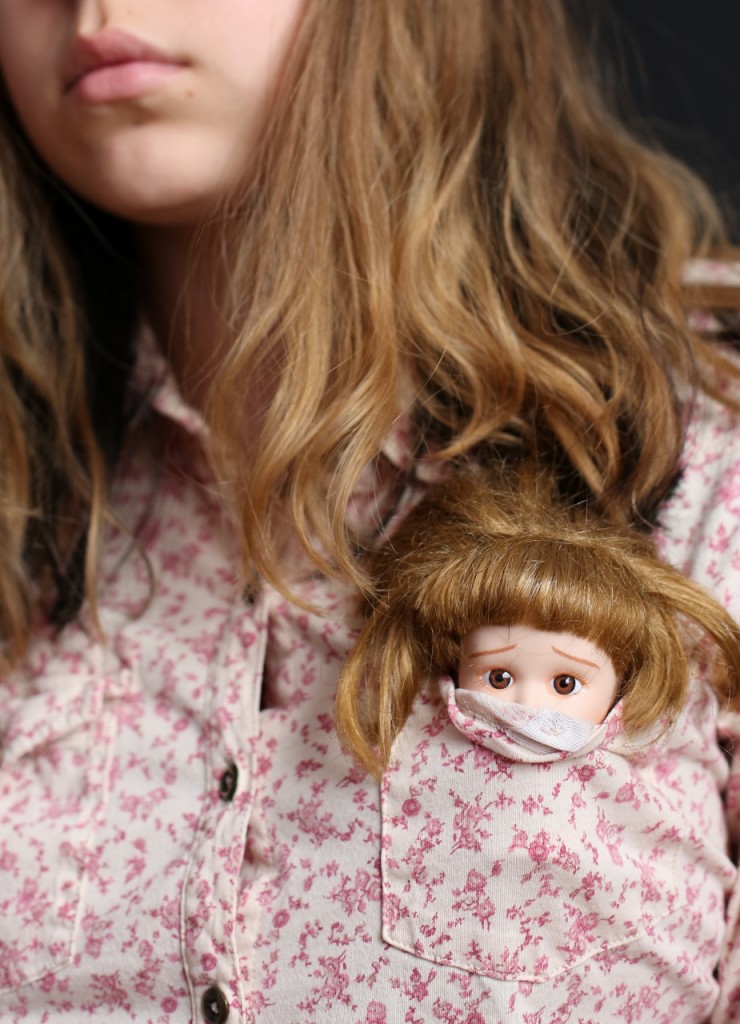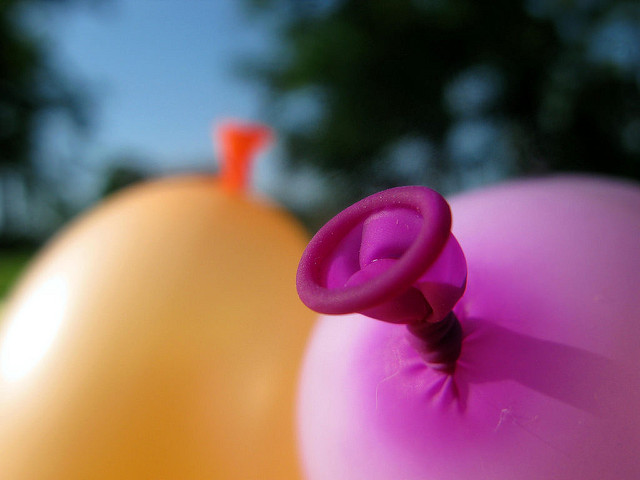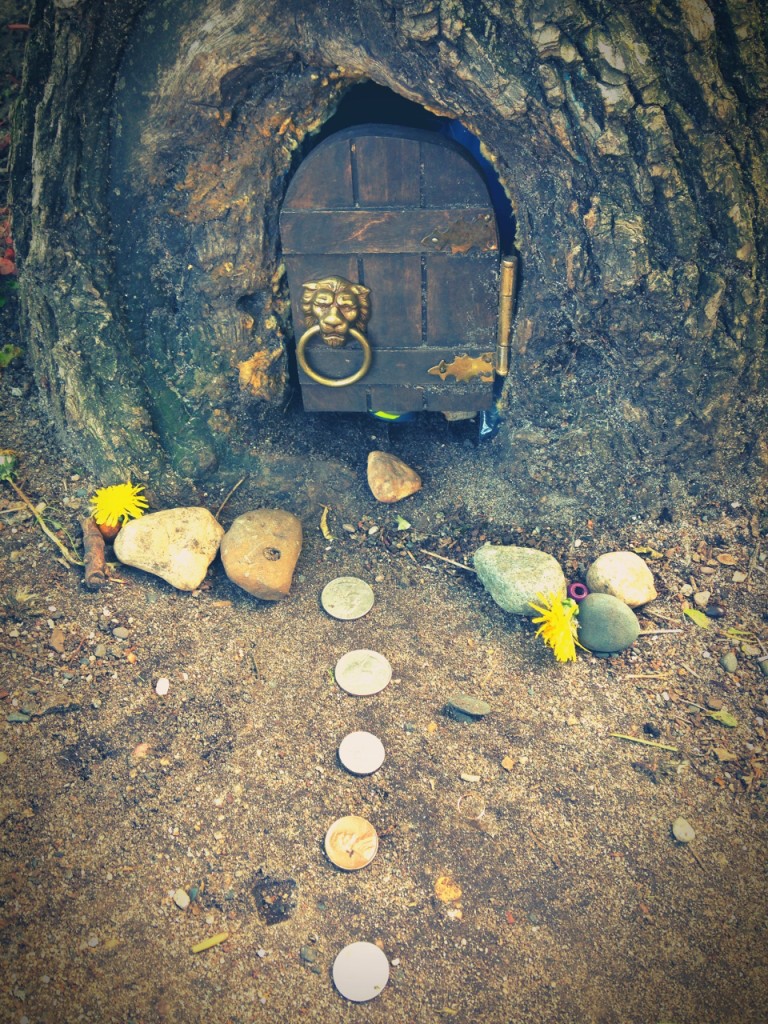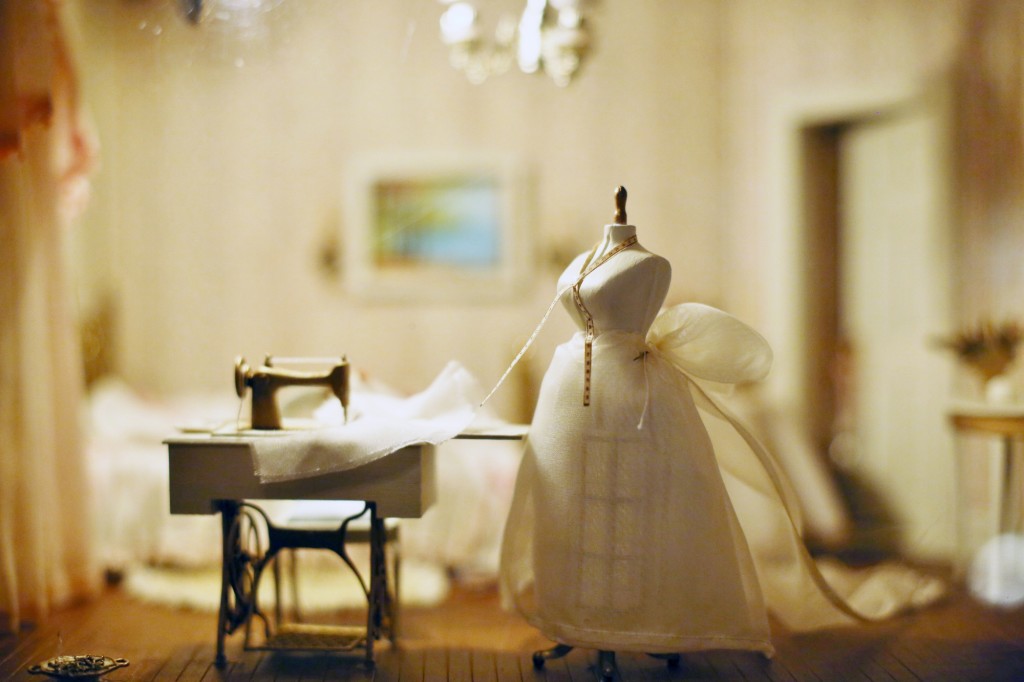Photo by Gina Easley
By Julie Parker
June 1999
Dear Beleaguered Store Manager,
I’m writing to apply for the position of sales associate at The Gap. I am too old to go back to summer camp. I’m not cut out to be a camp counselor like my friends, mainly because it requires talking to people I don’t know, which I find terrifying. But I need to start making my own money to spend on necessities like pizza at Sbarro and blue nail polish at Hot Topic. Thus, I hope you’ll consider me for this position.
Here I stand on the precipice between childhood and adulthood—between spending my summers being supervised by productive members of society and spending my summers as a productive member of society. Good riddance, childhood. So long, capture the flag and color war. I won’t miss you a bit. You have been replaced by something far more intriguing to me: earning money.
The meager allowance my parents give me is insufficient to support my weekly trips to the mall with my friends. Since I already frequent the mall most Saturdays, The Gap seems like a natural choice. I’m also interested in the employee discount, which is rumored to exist but sounds too wonderful to be true. This may sound like a selfish reason to apply but rest assured that I plan to share the discount with as many of my friends as possible.
My qualifications include a pretty good work ethic and mild interest in clothing. Please disregard the brown sweater I wear three to five times a week that my mother refers to as “Meatloaf” and that she has asked me to throw away for several years now. I believe that access to the aforementioned employee discount will allow me to meet my fashion potential in a way that I have been unable to thus far in life.
Finally, please note that I don’t believe my painful shyness will be an issue in dealing with customers. I look forward to the routinized interactions that accompany working the cash register. “That will be $42.50,” I can already hear myself saying. “Thank you and have a nice day.” Easy peasy. Though if you want me to stand quietly in a corner and fold sweaters, that’s fine, too.
I look forward to hearing from you. To contact me, please call my house and ask for Julie. If my dad picks up and makes a weird, unfunny joke, feel free to ignore him.
Thank you,
Julie
June 2002
Dear Poor Man’s Hallmark,
For the love of God, I cannot bear to fold another sweater. By this point, I must have folded thousands and thousands of articles of clothing, only to watch the pile destroyed minutes later by a careless shopper looking for a size 8. That’s why I’m applying for the position of sales associate at your American Greetings card store. How bad could it be to tidy up greeting cards at the end of a long day?
Don’t get me wrong, working at The Gap wasn’t so bad, at least for a while. I learned how to make polite conversation with strangers, to say, “Welcome to The Gap. Is it still raining out there?” I was a whiz at the cash register. Once I got up the nerve to ask a manager what “running” meant, I sort of enjoyed the process of transporting items from the fitting room back to the racks—almost like a scavenger hunt, finding each item’s rightful home in the store. I got better at clothing “girl talk” in the fitting room: “Ohmygod, that looks sooo good on you!” I even learned my social security number, since I used it to punch in on the time clock in the back room each day.
But none of the perks—which, along with my welcome paycheck, led me to keep working nights and weekends after school started again—could truly offset the misery wrought by spending hours upon hours folding articles of clothing. On a Saturday morning before Christmas, I would arrive while it was still dark outside only to find the store had been hit by some sort of tornado the night before, requiring hours of folding and running items from the mountain of sweatshirts and jeans still sitting in the fitting room. Like Sisyphus, I’d slowly make my way up the mountain, only to do it all over again the following day, and the day after that.
On the opposite end of the spectrum, when the store was deserted on a sunny Saturday in July, the managers would insist I “look busy” by refolding stacks and stacks of perfectly folded tank tops and shorts. God forbid the regional manager decide to stop by on a whim and find employees lazing about.
All of which is to say that I’ve decided I can do better. Retail is a good fit for my mediocre people skills and I do enjoy the sense of ownership that comes from welcoming people into a place you know well and helping them leave with what they need. But I can’t fold any more clothes. It’s not even worth it for 50% off six items every month. I’ve got all the clothes I could possibly need, including a blue puffer vest I will wear for the next decade. So I hope you’ll consider me for this position selling greeting cards, which I’m confident will be much more enjoyable.
Sincerely,
Julie
January 2003
Dear Federal Government, Source of All Problems (At Least According to my Dad),
Thank you for considering me for the position of intern in the congressman’s district office. I must express my disappointment at the fact that this internship doesn’t pay, which forces me to keep my job at the greeting card store and work in the congressman’s office only a few days a week. However, I do look forward to having a job that doesn’t require hunting through aisles of cards to locate the home of one dropped on the floor that has a cartoon of a naked person and reads, “For your birthday, let it all hang out!”
I have spent several summers now selling greeting cards and other useless knickknacks. The American Greetings store where I work is the competitor/ugly stepsister of the Hallmark store, which is at the other end of the mall and sells those Christmas ornaments that people collect. My store, however, has the distinct advantage of being located near both CVS and the food court, so Hallmark can suck it.
Now that I’m in college, I need to start building my resume, or so people tell me. This confuses me, because isn’t a resume just a piece of paper that lists all of the jobs I’ve had? It’s not a skyscraper or even a tower of Legos, so how would I “build” it exactly? Still, I agree that if I want to get a job after college that doesn’t involve selling Scotch tape as an “add-on,” I need to prove I’m capable of more.
Which brings me to this internship. And, relatedly, nepotism, which is how I plan to wrest this highly coveted position from all of the better-qualified people who did student council in high school (which I didn’t) and who major in political science (which I don’t). My grandmother is somehow related to the wife of a congressman in another state and his very nice chief of staff agreed to put in a good word for me.
Though I’m not exactly sure what a congressman does, much less what a congressional intern does, I’m sure I’d be great for this position. I’m adept at Microsoft Word, and after years in retail, I’m also adept at dealing with crazy people—no offense to your constituents. My only request is that you don’t call my coworkers at the greeting card store for references, because they would surely find this internship hoity-toity.
Thank you for your consideration,
Julie
June 2004
Dear Purveyor of Pretentious Pens,
I thought I had risen above working in retail, but how wrong I was. This is what I get for deciding to ignore reality while I spent a semester studying abroad. Now I’m back in the U.S., committed to a summer sublet with my friends that costs several hundred dollars a month, and jobless. I desperately need you to hire me as a sales associate at your fancy pen store.
Kind regards,
Julie
April 2005
Dear Lawyer at Law,
Please consider me for the position of paralegal at your immigration law firm. I’m graduating from college in May, I have no idea what I want to do, and moving home is not an option. This two-year position would give me some breathing room until I figure things out, so I think I’d be an excellent candidate.
I convinced my friends to sign a lease on an apartment before we even graduate, despite their misgivings. I told them we couldn’t wait, all of the reasonably-priced apartments in our desired area of the city would be gone. So we’re in, we’re committed, and there’s no backing out. I’m going to owe rent and utilities very soon, and they’re all going to kill me—and more importantly, “I told you so” me until the end of time—if I can’t pay.
I found this job through the international relations department at school, which maintains a list of job postings. Many of them are for nonprofit organizations in exotic places, which sound great in theory—but my main objective at this point is to have time to drink Smirnoff Ice with my friends on rickety back porches. The Peace Corps will have to wait.
I am a diligent worker and a decent writer. I learn fast and adapt to new situations quickly. And whether you’re partial to ballpoints or rollerballs, I’m deeply familiar with the writing implements used to sign legal documents.
Thanks in advance for your consideration,
Julie
March 2008
Dear Too-Cool-for-Me Magazine Editor,
Does it still count as a career change if it happens after your first job? If so, I’m a career changer. Two years at a law firm was plenty to convince me I do not want to be a lawyer. That and the first chapter of a book I bought on Amazon titled “Should You Really Be a Lawyer?” Thus, I hope you’ll consider me for this internship.
Turns out that being a paralegal means completing a lot of forms for very interesting people, but not getting to actually learn much about them, let alone write their stories. The MacArthur fellow who was applying for permanent residency in the U.S. so she could continue her art installations in dilapidated mental hospitals? I had a feeling she was more than an O-1 visa application. The only way to get to the meat of stories like hers—and to write, really write—is to become a journalist.
And the fastest way to become a journalist is to fly through a year of journalism school. I had no interest in getting some shitty job at a local paper, covering city council meetings and Little League games. It already seemed like I had wasted two years, and there was no more time to lose if I wanted to become a New York Times columnist. To journalism school I went, and now, here I am. Applying for an unpaid internship. Again.
Please find attached my clips from school: a story about the spike in romance novels for middle-aged women (sometimes known as “hen lit”) and a story about a shoddy method of birth control called cycle beads. My focus on headline-grabbing trend pieces would be a perfect fit for your magazine.
Thank you for your consideration,
Julie
March 2008
Dear Overworked Newspaper Editor,
Because I’m not sure this magazine internship will work out, I’m hedging my bets by simultaneously applying to be an intern for the business section of your regional daily newspaper. I appreciate the fact that this internship is paid, though I could earn more working at Dunkin Donuts across the street.
I don’t have a particular interest in business reporting, but my natural bent toward practicality led me to take a business class in journalism school and do well in it. I can look at a company’s quarterly earnings report and deduce something from it. I’m not sure that will come in handy at this job, because I don’t think I have ever actually picked up a copy of your newspaper, but I’m certain my skills can be applied somehow.
Kind regards,
Julie
July 2009
Dear Corporate Middle Manager,
I can’t believe that I’m applying to work at a law firm again. To be brutally honest, my mother found this job listing in the newspaper, and I kind of don’t want it to work out because then she’ll hold it over me. Still, I appreciate you considering me for the position of marketing communications specialist.
You advertised this job as being an internal reporter for your law firm—someone to write about the cases the lawyers are working on, in layman’s terms. That sounds pretty perfect for me. My first job out of college was at a small law firm. I’ve spent the past year working at a local magazine and newspaper, writing about subjects as varied as a men’s beauty pageant (which I very nearly got to judge) and a fire truck getting stuck in the snow during a blizzard. (That was a miserable day at the paper. I kept getting sent out in the storm and was forced to dig my car out anew every two hours.)
What I discovered during this time was that for me, journalism is not enough fun to make up for such meager compensation, lousy benefits and long hours—if it’s even possible to snag one of the disappearing jobs. My editor at the paper was a wonderful journalist who truly loved the daily grind: spending hours making phone calls, banging out stories about ultra-local issues, putting the paper to bed at eight p.m. on a Friday. Sure, I could slog through those things too, but they didn’t bring me joy the way they did him.
Suffice to say, I want to find something that does bring me joy. I’m willing to give this “marketing” thing a shot, even though I’m not sure what marketing is exactly. Hopefully I will not be required to say things like,“I’m reaching out to my contact to see if he can meet his deliverables by COB.” If there’s one thing that’s been instilled in me by journalism, it’s a low tolerance for BS.
Thank you,
Julie
April 2014
Dear Director of Client Services, Whatever That Means,
It’s been quite a while since I’ve written a cover letter. I’ve been at my law firm for almost five years now, and it’s been the best job I’ve ever had. But I know it’s getting to be time to move on, and I think your law firm could be the right next step for me. Thanks for considering me for the position of marketing communications manager.
This has been the first job I’ve had that really makes me feel like an adult. The things I do each day are interesting, and they matter, and I’m good at them. I get a sort of high from being able to earn respect from lawyers twice my age who make associates cower in the hallway. My boss tells me I have potential as a leader. No one has ever told me that before. And hallelujah, praise the lord, I have VACATION DAYS.
I’m not sure how I feel about the fact that this job is such a good fit. I’m a little bit ashamed that I don’t have the urge to be a war correspondent in the Middle East, like so many of my classmates from journalism school. I’m too embarrassed to stay in touch with my favorite journalism professor; I can almost feel his disappointment. Do I want to work in legal marketing forever? I don’t know. But I like the variety, getting away from the reporting/writing grind. I like working on the text of a brochure in the morning, and then sending out an urgent alert to clients about a Supreme Court decision in the afternoon. The 9-5 is underrated. I wouldn’t take a job at a newspaper if one fell into my lap.
Still, things have gone downhill in the last few months. Morale is not great. Most of my days consist of one person after another sticking their head into my office and saying, “Can I vent to you for a few minutes?” I don’t have any interesting new projects on the horizon. And I know they can’t promote me any further. But they’ve made me believe I’m manager material.
To that end, please consider me for this role. The prospect of being in charge of all marketing is scary to me. I don’t know anything about PR or web design. But I’m sure I can figure it out. And if all else fails, I’m an excellent sweater-folder.
Thanks in advance,
Julie
•••
JULIE PARKER is a work-in-progress living in Boston. For the past four years, she has managed marketing and communications at a law firm.


 Follow
Follow
